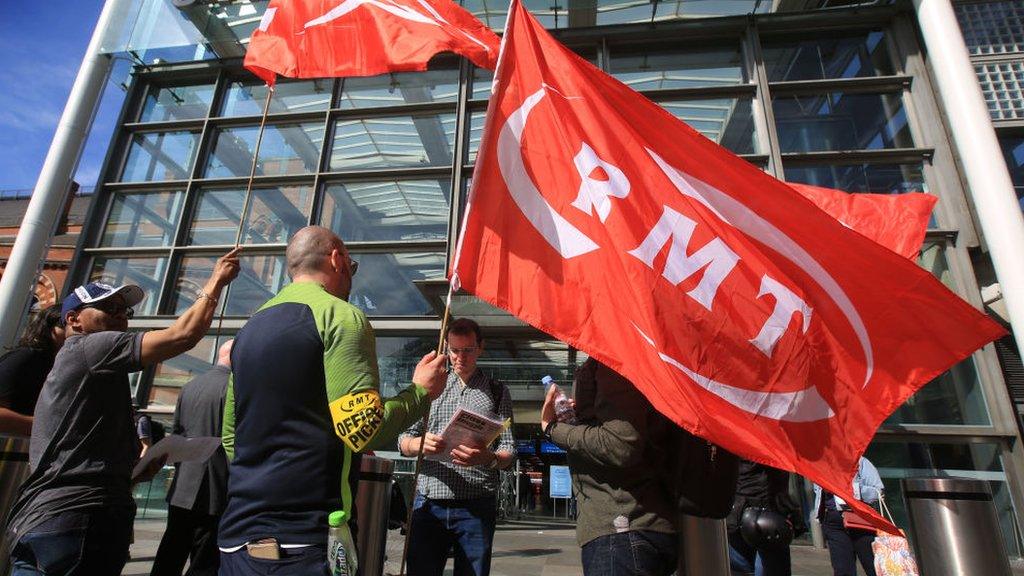Thousands of nurses set to go on strike in the UK before Christmas
- Published
- comments
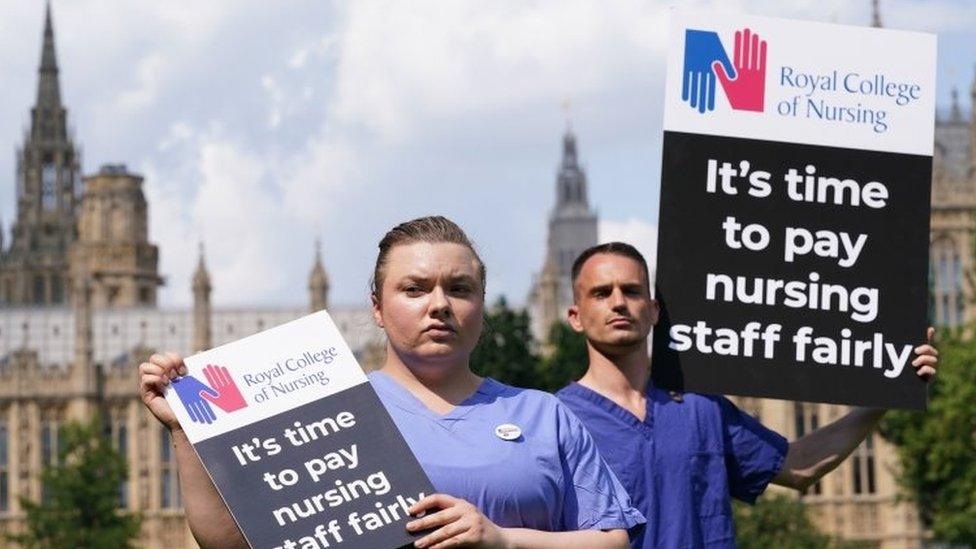
Nurses across the UK have voted to go on strike over their pay conditions.
The Royal College of Nursing (RCN) announced strikes from 8.00am-8.00pm on 15 and 20 December in its dispute with the government.
This will be the biggest ever strike by nurses in the UK - and the first time the (RCN) has taken action across the whole of the UK in its 106-year history.
The RCN is a union, which is the name for a group of of workers from a particular job (like nurses) who want to try to improve conditions for their members where they work.
Members of the union say people needing emergency care will not be affected.
What is a strike and why do they happen?
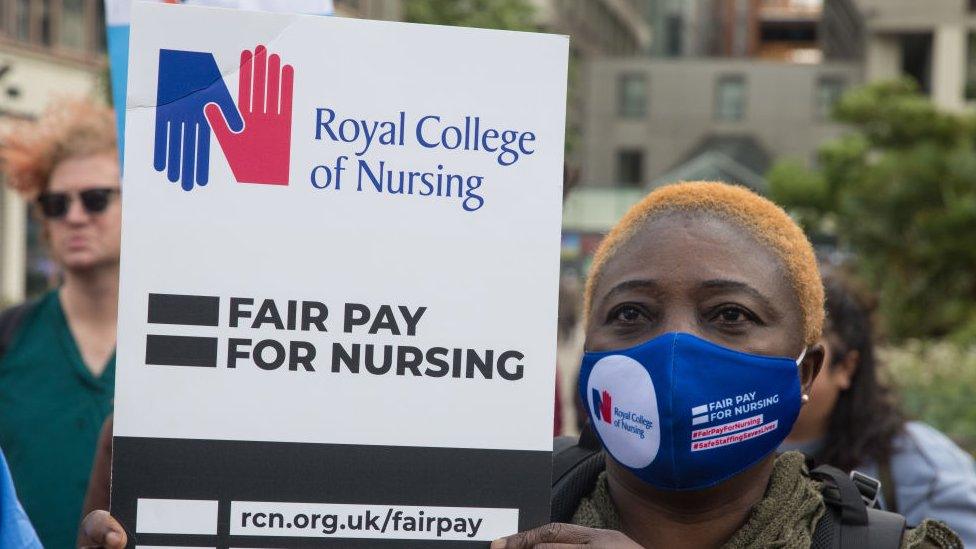
Nurses will be going on strike over their pay conditions - which means they are asking to be paid more to keep up with the UK's inflation rate
A strike is when a group of workers come together and agree to stop working. People do this when they want to protest against something they think is unfair in their job.
Strikes often happen because workers want those in charge to listen to what they want. It could be because people are not being paid enough, or if they feel their work conditions are unsafe or unfair.
Strikes are usually a last resort for workers if their bosses have not been listening to them. By stopping working, striking workers hope that it will make their worries heard.
When on strike, workers do not get paid. No one can be forced to go on strike - people have every right to still work if they want to.
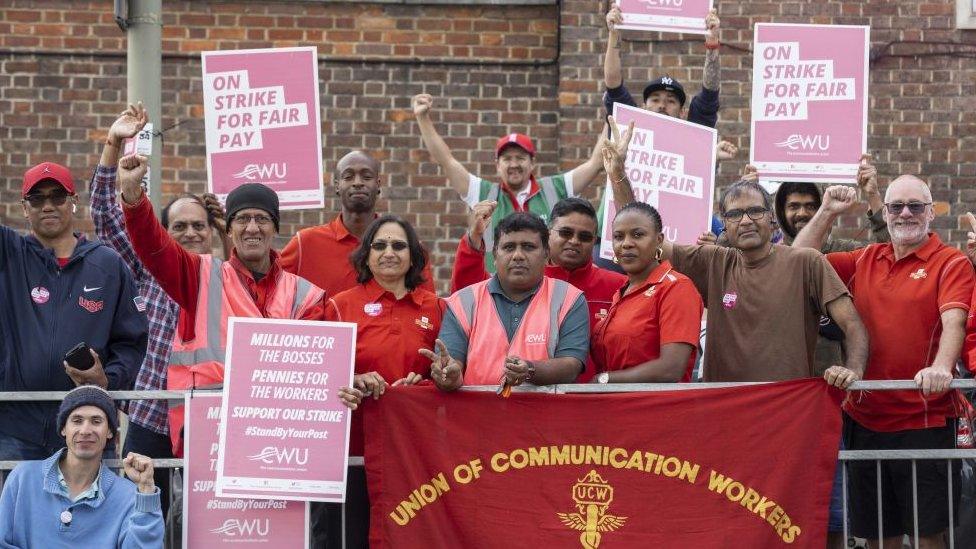
Royal Mail workers - who deliver our post - went on strike in summer
Strikes can have an impact on people's daily lives. For example, railway strikes can affect people's commute to work or school, and teacher strikes can lead to school closures if there aren't enough staff to teach students.
When a strike happens, there are often arguments about who is to blame for the disruption caused.
Groups that represent workers - called trade unions - will argue that the people in charge of companies - called employers - or sometimes the government, are to blame for not agreeing to their demands.
Employers might say that the demands being made by the workers are unreasonable, or that the disruption caused is unfair.
Why are nurses going on strike?
Ricky finds out more about the cost of living crisis
The Royal College of Nursing (RCN) has said it wants the amount of money that nurses are paid to be increased by around 5% more than the current UK inflation rate.
The inflation rate is the increase in how much goods and services (like food, petrol and toys) cost over a period of time.
The current UK inflation rate is above 12%.
Things like petrol and food have gone up in price, and lots of people's wages have not been keeping up with the rising inflation rate.
This means people's money doesn't go as far as it used to, so buying things and paying bills is harder.
Lots of other people have been going on strike recently due to inflation such as members of the RMT, which is the union that represents rail workers.
In England and Wales, NHS staff, including nurses, have been given an average wage increase of 4.75%, with extra for the lowest paid workers.
In Scotland, 5% was initially offered to NHS staff, but that has been changed to a flat rate of just over £2,200, which works out at just over 8% for a newly-qualified nurse.
In Northern Ireland, nurses are yet to receive a pay award.
What will happen when nurses go on strike?
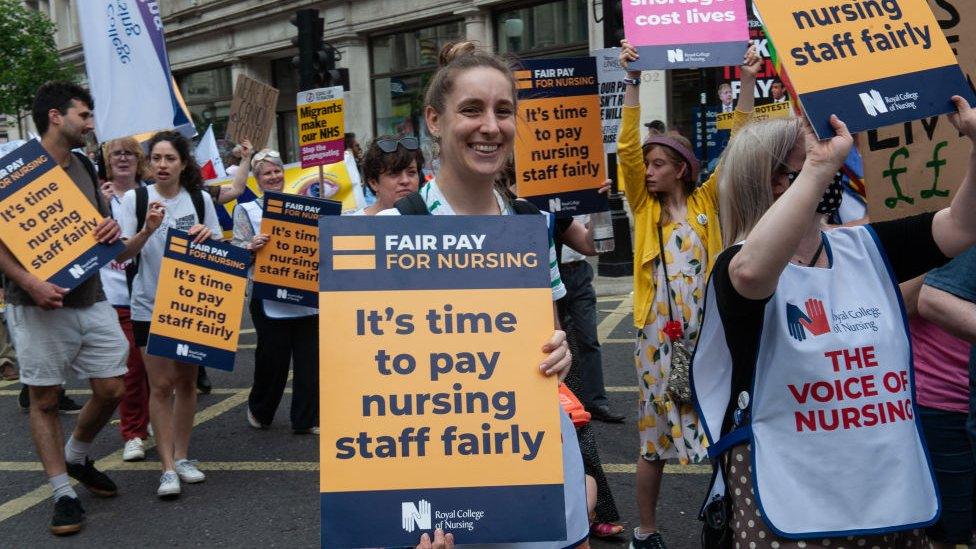
NHS nurses marched through London as a part of pay protests
The RCN says emergency care will not be affected by the strikes.
This means they are saying if you are in an emergency situation and need a nurse, you won't be affected, and intensive care units in hospitals will still be fully staffed.
However it will impact non-urgent care. This could be routine services like home visits and planned operations.
The government also says that the NHS has "tried and tested plans in place to minimise disruption."
What have people said about the strikes?

Whilst emergency care will remain staffed, lots of appointments and minor operations could be pushed back
Pat Cullen is the general secretary of the Royal College of Nurses. She said nurses are getting a "raw deal" on pay, and that "members are saying enough is enough".
"Ministers have chosen strike action," she added, "nursing staff have had enough of being taken for granted... enough of not being able to give our patients the care they deserve."
She says that the strike is for patients as well as workers, because staffing shortages are impacting healthcare across the UK.
Health Secretary Steve Barclay - the politician in charge of the NHS, hospitals and care in England - says the RCN's demands aren't affordable and that he "deeply regretted" that union members would be taking action.
He said his priority is "keeping patients safe during any strikes".
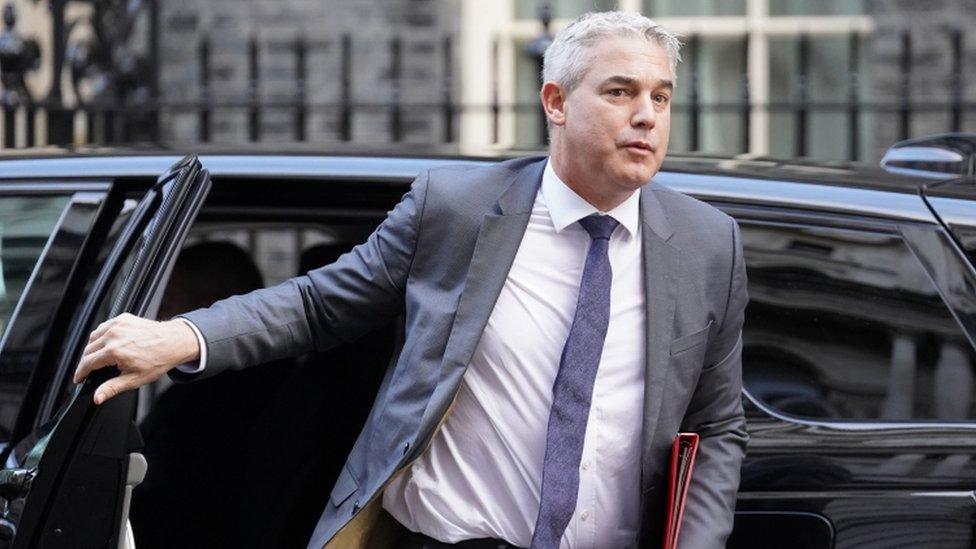
Steve Barclay is in charge of Health policy for England
Scottish Health Secretary Humza Yousaf said the UK government should "put its hand in its pocket" to provide more funding for pay, saying: "I don't have any more money."
The Welsh government also said it was unable to enter pay talks without extra funding from the UK government.
Labour's health spokesperson, Wes Streeting, said talks should restart - although he wouldn't say that his party would give the RCN the pay rise it wants
Many other big healthcare unions, such as Unison, the Royal College of Midwives, GMB and Unite, have also started to, or are planning to, hold a vote on strike action with their members.
- Published26 August 2022

- Published26 August 2022
